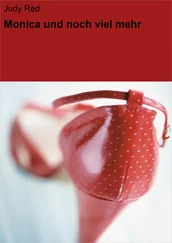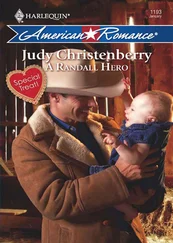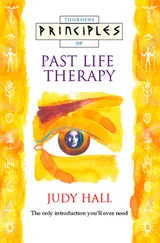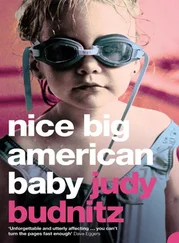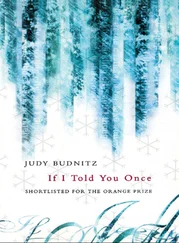“But it’s crazy—”
She takes my hands in hers and looks up into my eyes. “Frankly, Arnie, I didn’t think you had it in you. I’m really impressed. Really, I am.”
“Mandy, I thought you could be realistic about this. What about me? Do you want me dead? What am I supposed to do without a heart?”
“Oh, I’m sure they could fix you up. The important thing right now is to help your mother.” She unzips my jacket and presses her hands against my chest. My heart twitches, flutters like a baby bird in her hands.
“What about your heart? If I give my mother my heart, would you give me yours?”
She draws away from me suddenly. All the lights in the parking lot click on simultaneously and her face is flooded with white. She presses her knuckles to her mouth. “Now that’s not fair,” she says.
“There! Now you see! When it’s your own heart in question, you change your mind, don’t you?” I cry, waving my arms around.
“You’re not being fair,” she says again, her lower lip quivering. “ You’re the one who doesn’t want a commitment. You’re the one who can’t even say the word marriage . A few months ago I would have given you my heart, and gladly, but you didn’t want it. But now … well, if I gave it now, that wouldn’t be fair to either of us, don’t you see?”
“No, I don’t. Maybe it’s time we thought about getting married. You could come share the apartment; we could share things—”
“Oh, you’re just saying that. You’re just thinking about yourself, what you need; you don’t care about me. I think I’d better go—”
“But Mandy! Wait! What am I supposed to do?”
“Arnie, you know what the right thing to do is. You should get back to your mother now. Give her my regards.”
“You hate my mother.”
“No, I just feel sorry for her. She has a bad aura. She’s had a hard life, and it’s not all her fault,” Mandy says. She pats my arm. “You know what you should do. She’s your mother.”
I try to kiss her, but she turns away and I get a mouthful of hair. “Why don’t you call me after you make a decision?” she says. “Then maybe we’ll talk.” I’m reaching after her, wanting to grab hold of her hair, the belt on her overcoat, anything, but she’s too quick, a few steps away already.
I watch her go. Brisk, determined steps, like a schoolteacher. “But Mandy!” I bawl. “Mandy—this may be the last time you ever see me with my heart! Next time I could have a different heart! A different heart! What about that?”
She doesn’t even stop, just calls over her shoulder, “Who knows, it might be better than the old one.”
I find my way back to the waiting room. Someone has mopped up the coffee.
“Feel better?” Nina asks.
“Made a decision yet?” Fran says.
“Yes … no … I don’t know,” I say.
They are both quiet.
Then Aunt Nina says, “She carried you for nine months. More than nine months! You were late. Do you remember it?”
“Of course he doesn’t,” Aunt Fran says.
“She didn’t mind it, of course. She loved it. But it couldn’t have been easy,” Aunt Nina says. “She was a frail woman.”
“What are you talking about?” I say, though I can guess.
“There was a time when her heart beat for both of you.” She sniffs. “I don’t see why you can’t do the same for her.”
“He said he’s thinking about it,” Aunt Fran reminds her. Fran turns to me. “Arnie, think about this: The heart’s a little thing really. Less than a pound. It’s just a muscle. You’ve got muscles all over the place. Can’t you spare one?” She looks earnestly into my face. “Can’t you spare a little bit of flesh?”
“Your mother’s dying in there!” Nina blurts out. She heaves a shuddering sigh, then another. “Don’t you care?” she says, and then they are crying, both of them, drops sliding down the wrinkles in their faces.
My mother’s dying in there. Dying? She looked all right just a little while ago, I remind myself. But I have to sit down. A coldness sinks and spreads through my gut. I want to call someone, talk to someone. I want a drink badly.
Later we go visit my mother again. She looks worse, but perhaps it is the fluorescent lights draining color from her face. I stand again at the foot of her bed. I can see the veins and tendons on her neck. So delicate, so close to the surface, you could snip them with scissors.
“Arnie,” she says softly, “you should go home and get some sleep. And shave. You look terrible. So tired. Go. I’ll be here tomorrow, I’m not going anywhere.”
“You see?” Fran hisses at me. “Sick in the hospital with a bad heart, and all she can think about is you!”
Nina strokes my mother’s head and tells her she’ll be fine. I look at my mother lying there and I try to think of her as organs, blood, cogs and springs and machinery. I remember a time when I was small and she hugged my head to her. My ear pressed into her stomach and I could hear the churning, gurgling workings within.
“Go on, now. Get some sleep. I’ll be fine,” my mother says weakly, and closes her eyes. We shuffle out.
Fran and Nina say they will stay awhile longer, in case anything happens. I leave, but promise to come back soon.
I drive home in the dark. I go up to my apartment and turn on the lights. I take a shower and try to shave, but my body does not want to work properly. I stub my toes, jab my elbow, and poke a toothbrush in my eye. When I look down, my body looks strange and alien, hairier than I remembered, and larger. Looking in the mirror gives me a chill; as I shave I have the feeling the face in the mirror will start to do something different from what I am doing.
I go into the kitchen and put a frying pan on the stove. I put in a dab of margarine and watch it slide around, leaving a sizzling trail. I think of eggs. Scrambled? No—fried, sunny-side up, half-raw and runny. I get two eggs out of the refrigerator. I crack one into the pan. There’s a blob of blood mixed in among the yellow.
I dump everything in the sink and run the garbage disposal, trying not to look at it too closely.
I want to call Mandy. Then I realize I don’t want to call her at all.
Usually my mother calls in the evenings to tell me about TV programs and weather changes.
I turn off the lights and sit in the dark. I look at the ceiling, at the smoke detector. It has a blue light that pulses and flickers with a regular beat like the blip on a cardiograph.
Early the next morning, at the hospital, I tell the doctor, “I want to do it. Give her my heart.”
He gives me a long, steady look, eyes huge behind the glasses. “I think you’ve made the right decision. I do,” he says. His eyes drop to my chest. “We can get started right away.”
“But what about a transplant for me?” I say. “Don’t you need to arrange that first?”
“Oh, we’ll take care of that when the time comes. I want to get your heart into your mother right away, before … before—”
“Before I change my mind,” I say.
He hardly hears; he’s already deep in his plans. His scalp is shiny with sweat.
“Is it a complicated kind of operation?” I ask.
“Not really,” he says. “Making the decision is the hardest part. The incision is easy.” He claps me on the back. “Have you told your mother yet? Well, go tell her, and then we’ll get your chest shaved and get started.”
This is what I’ve realized: All along I thought I’d publish a book. Lots of books. Get recognition, earn lots of money, support my mother in style in her old age. Give her gorgeous grandchildren. I thought that was the way to pay her back everything I owe her.
Читать дальше
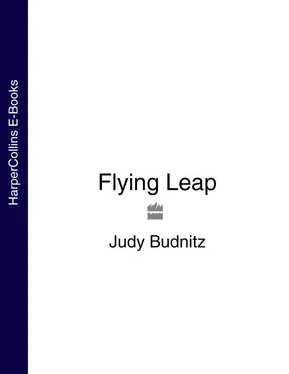
![Brian Jacques - [Flying Dutchman 01] - Castaways of the Flying Dutchman](/books/128851/brian-jacques-flying-dutchman-01-thumb.webp)
